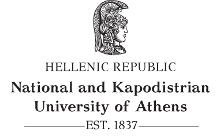SERVICES OFFERED
Breast cancer, whilst being the leading cause of death among women, is known to have a high survival rate, with a 95% chance of recovery if diagnosed and treated timely. Therefore, extending regular screening (e.g. annual mammogram) for the general female population and treating any palpable and non-palpable lesions diagnosed, in accordance to the international guidelines, is a Breast Unit’s primary concern.
The Breast Unit of A’ Propaedeutic Surgery of NKUA in Hippokratio General Hospital is designed to to speed up the process of diagnosis and treatment for several breast conditions. For this purpose, the Unit's multidisciplinary scientific team includes consultant breast surgeons, radiologists, cytologists, biologists, psychologists, lymphedema treatment specialists as well as specialized nurses and paramedics, all dedicated to delivering a comprehensive diagnosis and plan of care to each patient in a single visit.
The electronic registry of attending patients offers additional aid to both the optimization of services provided as well as the collection of significant medical data for breast diseases in Greece. In the course of consultation, patients are interviewed about their personal and family health history before proceeding to their physical examination by a breast surgeon. If their personal and family cancer history indicate a potential hereditary predisposition they are referred for genetic counseling. Genetic counselors provide information, resources, and support to these patients as it is critical to accurately evaluate high risk patients and determine who may benefit from genetic testing. Determining an individual's hereditary predisposition is rather significant for the therapeutic management of patients as well as towards evaluating the risk for developing a range of cancers for their family members. Genetic testing is also an available service provided by the Unit (for further information contact: Laboratory of Experimental Surgery and Translational Research, Α΄ Department of Propaedeutic Surgery, tel: 2132088569). Once patient assessment is complete, if required, patient is referred for further consultation to the Unit's specialists and directed accordingly for additional medical exam, diagnosis and treatment potentials.
At the end of the consultation in the Breast Unit, the Problem if any is clearly explained to the patient as well as any further investigations may be required to assist in an accurate diagnosis of the problem by the breast consultant.
These may include one or more of the following:
Breast ultrasound
Which is a painless noninvasive examination based.
Breast biopsy
Required if an abnormal area is detected on ultrasound scan or mammogram. Bioptic tissue or cell aggregates acquired during the procedure are processed for evaluation to cytology or pathology laboratories.
Each bioptic sample can be acquired by:
- A fine needle aspiration cytology which feels like a normal injection where few cells are removed from the breast by syringe.
- A core needle biopsy: tissue samples are removed using a hollow needle. Both fine and core needle procedures are minor and may be performed under local anaesthesia. However, bruising may develop and be present for a few days after the procedure.
- Vacuum-assisted Stereotactic Breast Biopsy Lesions performed only if detected only by mammography. Vacuum-assisted breast biopsy (VABB) is currently the method of choice for acquiring stereotactic biopsies. VABB is considered to be a safe procedure and is comparable to surgical biopsy for characterizing microcalcifications. Studies have shown it to be a very accurate biopsy method allowing for high-quality specimens, high calcification retrieval and low rates of false-negative results. VABB is not a therapeutic procedure for malignant lesions; however, using VABB rather than surgical biopsy for diagnosis reduces the number of surgical procedures required.
- Wire-guided excision biopsy: in this procedure a wire is inserted into the breast tissue under either ultrasound or mammographic guidance to aid surgeons towards the tissue area to be removed. It is performed under local anesthesia usually the day prior to the scheduled surgical excision of the lesion.
In the course of their consultation patients are often presented with the option to participate in a clinical research project to which they may either provide their informed consent or opt against without any consequence. So far, data from over 8,000 patients have been fully documented and a broad range of scientific, educational and post-graduate activities are implemented. The Unit has shown significant contribution to national and international academic research fields and several successful scientific Conferences and short seminars are regularly organized and chaired by the Director of Breast Unit, Professor of Surgery G. Zografos, aimed at optimizing prevention, diagnosis and treatment of strategies and guidelines for breast lesions.
Furthermore, Breast Unit has an active role in supporting the educational role of A’ Department of Propaedeutic Surgery. Medical students and surgery residents have the opportunity to attend patient consultation, on patient's consent and under the supervision of the Unit's qualified staff and, thus, get acquainted to, e.g. obtaining patient medical history and performing breast examination, and further advance their training skills.
